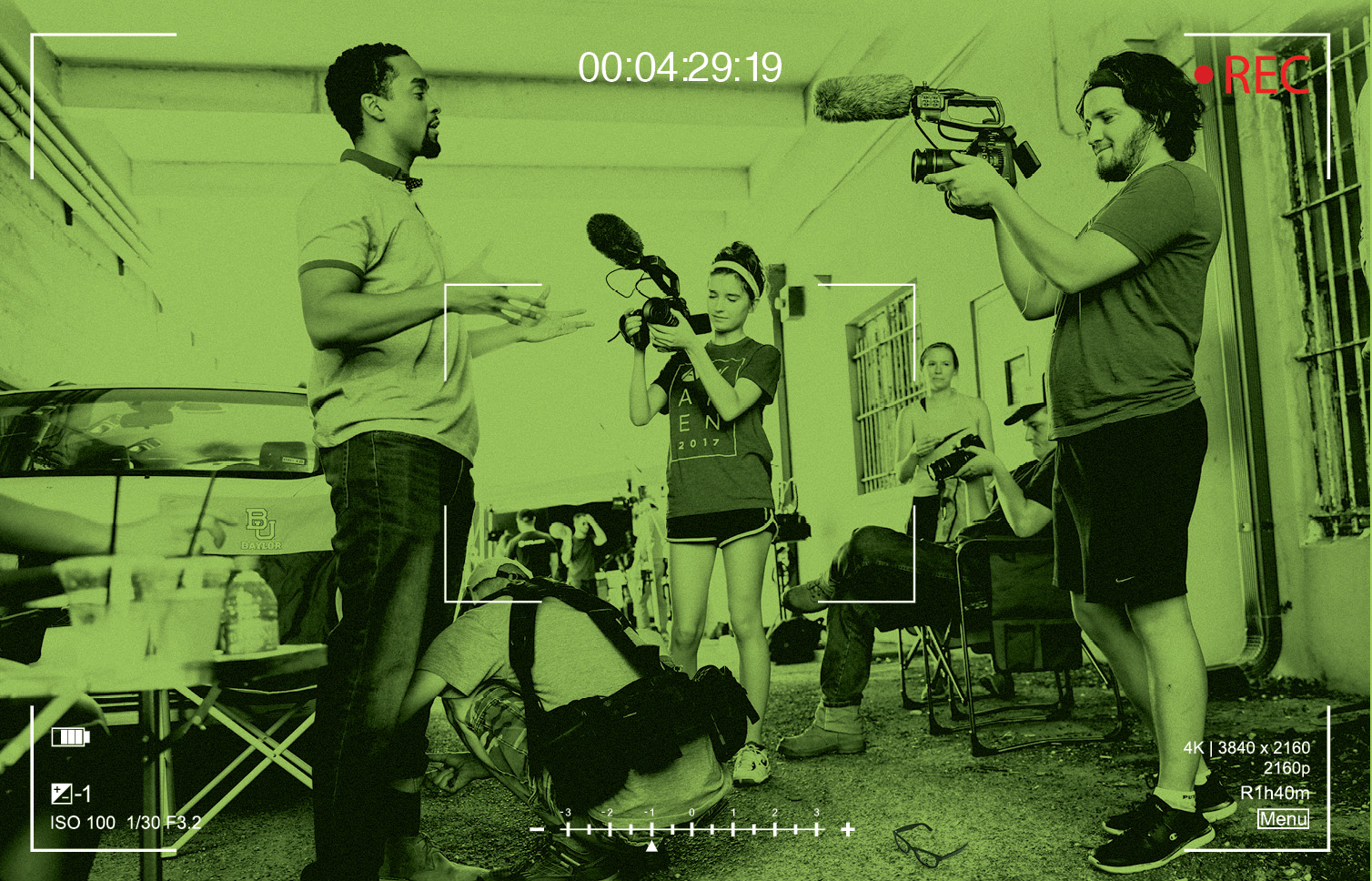Through a Creative Lens
Some Baylor traditions are more than 100 years old — think green-and-gold or bears as mascots — while others — like the running of the Baylor Line — are more recent additions but no less integral to the University’s rich community life. Another of the newer traditions merges the talents and creativity of students to deliver spectacular art for Baylor and the general public.
The Black Glasses Film Festival started out as a student-run exhibition and has become a staple of Baylor’s Department of Film and Digital Media (FDM). In May 2019 the festival crossed an important threshold, entering into the 20th year of its run.
The festival was started in 1999 by students, including Zak Hinkle, BA ’99, Mark Martelli, BA ’99, and Matt Hunnicutt, BA ’99. The name was inspired by Dr. Mary Slaughter, an admired film professor at Baylor known for sporting dark, thick-framed spectacles.
For most of its tenure, the event has taken place on Baylor’s campus — most often in Castellaw 101, an auditorium-turned-screening room. A partnership with the Waco Hippodrome Theater in downtown Waco is proving beneficial, particularly by providing greater access to the public for film screenings. FDM chair Christopher Hansen firmly believes this is part of the festival’s mission.
“This is one of the first opportunities that many of our students have to screen work in front of a large audience of people who aren’t their peers,” Hansen said.
Seeing how an audience reacts to jokes or jump scares, hearing what works and what doesn’t, and seeing one’s work on the big screen in a historic theater makes Black Glasses an invaluable experience.
“This is many people’s first step into the wider world of film festivals,” Hansen said.
That was certainly true for FDM lecturer Maverick Moore, MA ’14, who is a product of the department’s graduate program. His short films have enjoyed success at film festivals across the country and beyond. His film Shotgun screened at more than two dozen festivals, including France’s prestigious Cannes Film Festival. Moore said his first Black Glasses Film Festival was what set him on this road.
“That experience made me excited about participating in something like that in the future,” Moore said. “It showed me that not only was this something that I could do but also made me realize how rewarding it would be to submit and screen something.”
Moore participated in the festival his next two years at Baylor, and Shotgun won both best picture and audience awards before traveling to Cannes.
Those two awards are part of several prizes given out each year at Black Glasses. Each award also carries a cash prize with it, often sponsored by alumni in the film industry such as Chicago Fire’s Derek Haas, BA ’91, MA ’95.
Black Glasses, like all other film festivals, fosters creativity through competition. The number of submissions has increased each year while the number of films chosen to screen has remained relatively the same.
“One thing people have told me is that they can tell the quality of the films goes up from year to year,” FDM film history professor James Kendrick, BA ’96, MA ’99, said. Moore echoed Kendrick’s comments, saying “This year’s process of selecting films was the most difficult it has been since I’ve been part of the process.”
FDM celebrated the festival’s 20th anniversary with a dinner at The Palladium, located across the street from the Hippodrome. Filmmakers whose films were chosen were seated with faculty and selected guests. All were treated to a special night with the purpose of celebrating the previous two decades of filmmaking and film watching, including a montage of Black Glasses movies from years past and a panel discussion featuring previous top-prize recipients of the festival.
“We wanted to honor what had come before,” Moore said. “We did this with the panel and with the designs of the festival’s poster, which featured stills from some of our favorite films throughout the years.”
Yet, the festival programmers did not want to give the impression that this year’s festival was all about the past.
“We also wanted to continue to look forward to the future as well,” Moore said. “We decided not to screen any of those older films at the actual event because Black Glasses, for all its history, is still unfolding.”
And, the festival did that. Black Glasses Film Festival honored its past while also pointing ahead to a bright future. For filmmakers at Baylor and film lovers in Waco and beyond, this tradition will remain an event to anticipate every year.
